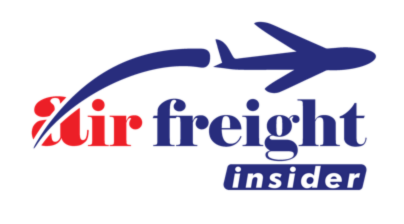Daily Briefing – July 27, 2025
Welcome to today’s edition of airfreightinsider.com’s Daily Briefing. Here’s your essential overview of the latest developments and trends shaping aviation and air cargo worldwide.
Strong Growth and Expansion Moves Among Airlines
Indian low-cost carrier IndiGo is ramping up its European presence by doubling flights between Mumbai and Amsterdam Schiphol Airport, increasing frequencies from three to seven weekly flights starting September 23. This move responds to rising demand and strengthens connectivity between India and the Netherlands.
Meanwhile, Dutch airline Transavia is seizing growth opportunities in Belgium with plans to open a full-fledged operational base at Brussels Airport in March 2026. With Dutch airports hitting capacity limits, Transavia’s Belgian expansion, featuring partly Belgian crews, aims to boost flight offerings in the Benelux region.
German holiday carrier Condor announces a significant increase in long-haul flights from Frankfurt next summer to popular destinations including Bangkok, Las Vegas, Johannesburg, Mauritius, and Panama City, operated with its Airbus A330neo fleet. This reflects ongoing demand recovery for far-flung leisure routes.
Challenges and Changes at Airports
In Italy, the Milan area airports have sharply increased parking fees for business jets by up to 650%, implementing tiered rates based on parking duration and raising landing charges — all without prior warning. The move, apparently aimed at controlling airport capacity and environmental impact, has generated significant backlash from business aviation stakeholders.
At Budapest Airport, airlines are currently facing fuel supply issues due to ongoing chain disruptions. Operators are advised to carry sufficient fuel reserves for return flights, highlighting continued vulnerabilities in airport logistics even amid global recovery.
The Dutch-German border region’s Maastricht/Aachen Airport is investing in enhanced sensor technology for temperature-sensitive air cargo. Partnering with monitoring specialist Flower Watch, the airport aims to significantly reduce temperature deviations in delicate shipments like cut flowers, improving quality and reliability for perishables.
Security procedures at European airports may soon see easing of restrictions on liquids in hand luggage. The longstanding 100-milliliter limit could be lifted at certain airports equipped with new scanner technology — a step welcomed by the airport industry but bounded by technical and security considerations.
Industry Innovation and Operational Developments
Delta Air Lines reports positive results from its pilot program using artificial intelligence to dynamically set ticket prices. Encouraged by the outcome, the airline is expanding the AI-driven revenue management system to a growing share of its inventory, reflecting a wider trend in leveraging advanced technology for pricing optimization in aviation.
On the manufacturing side, Boeing has officially started production of the 777-8, marking a milestone for the next generation of wide-body aircraft. Elsewhere, Air India has completed rigorous inspections as part of its fleet upgrade, and German engine supplier MTU reports revenue growth, underscoring stable momentum in aerospace technology amid market uncertainties.
Japan’s Starflyer airline continues its fleet modernization, recently taking delivery of a third Airbus A320neo from leasing firm SMBC Aviation Capital as part of a broader order of four aircraft, aiming to enhance efficiency and passenger comfort.
Safety and Incident Reports
Alaska Airlines Flight AS231 encountered a rare yet serious wildlife hazard when a Boeing 737 Max 8 collided with deer during landing at Kodiak Airport. No injuries were reported, but the incident underlines ongoing challenges of wildlife management at airports in remote regions.
On July 25, two cabin crew members were injured aboard a Southwest Airlines Boeing 737-700 following a rapid descent triggered by in-flight warnings. Southwest confirmed the flight crew reacted promptly to alerts requiring altitude adjustments, emphasizing the importance of crew readiness in handling unexpected situations.
In the Russian Far East, investigators have recovered the flight data and cockpit voice recorders from a recent crash that claimed 48 lives. The devices will be analyzed in Moscow as authorities work to determine the cause of the tragic accident.
Airline Branding and Infrastructure
Caribbean carrier Liat 2020 has revamped its public image by adopting the new brand name “Liat Air” along with a fresh logo, aiming to boost commercial appeal while maintaining its existing legal identity formed in 2020, as confirmed by CEO Hafsah Abdulsalam.
Antonov is expanding its maintenance capacity for its large An-124 freighters with a new hangar project at Leipzig/Halle Airport. The Ukrainian company continues to strengthen its European footprint, supporting vital cargo operations with dedicated infrastructure.
Regulatory Updates and Market Movements
India’s Bureau of Civil Aviation Security (BCAS) has updated security guidelines to eliminate mandatory re-screening of air cargo at transfer airports. This move is expected to streamline cargo transfers and improve efficiency across Indian airports, a positive development for freight operators in the region.
Poland’s upcoming major airport project is calling for a general contractor experienced with international greenfield airport construction. The winning firm will provide project management and contract engineering services, with bids accepted through October 20 as Poland prepares to boost its aviation infrastructure.
Summary
The global aviation landscape continues to evolve dynamically, with airlines expanding networks, airports upgrading infrastructure, and technology reshaping commercial operations. However, challenges such as rising airport fees, supply chain disruptions, and safety hazards persist, underscoring the complex balancing act for stakeholders. Stay tuned for continuous updates and insights from airfreightinsider.com.
— Your Editorial Team
